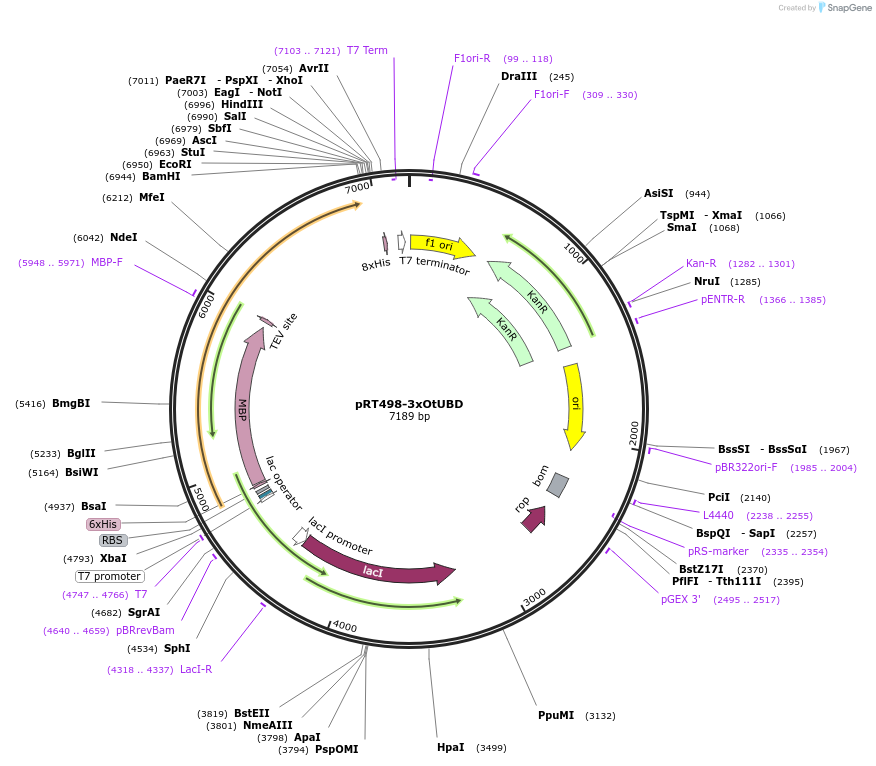pRT498-3xOtUBD
(Plasmid
#190088)
-
PurposeExpresses 3 tandem OtUBD with an TEV-cleavable N-terminal 6xHis-MBP tag as well as an engineered N-terminal cysteine in E. coli
-
Depositing Lab
-
Sequence Information
Ordering
| Item | Catalog # | Description | Quantity | Price (USD) | |
|---|---|---|---|---|---|
| Plasmid | 190088 | Standard format: Plasmid sent in bacteria as agar stab | 1 | $85 | |
Backbone
-
Vector backbonepRT498
-
Backbone manufacturerHochstrasser Lab
- Backbone size w/o insert (bp) 6312
- Total vector size (bp) 7193
-
Vector typeBacterial Expression
Growth in Bacteria
-
Bacterial Resistance(s)Kanamycin, 50 μg/mL
-
Growth Temperature37°C
-
Growth Strain(s)DH5alpha
-
Copy numberLow Copy
Gene/Insert
-
Gene/Insert name3xOtUBD
-
Alt name3xOtDUB(170-264)
-
SpeciesOrientia Tsutsugamushi
-
Tags
/ Fusion Proteins
- 6xHis (N terminal on backbone)
- MBP (N terminal on backbone)
Cloning Information
- Cloning method Restriction Enzyme
- 5′ cloning site NdeI (not destroyed)
- 3′ cloning site BamHI (not destroyed)
- 5′ sequencing primer GACTGTCGATGAAGCCCTGAAAG
- 3′ sequencing primer GCTAGTTATTGCTCAGCGG (Common Sequencing Primers)
Resource Information
-
Supplemental Documents
Terms and Licenses
-
Academic/Nonprofit Terms
-
Industry Terms
- Not Available to Industry
Trademarks:
- Zeocin® is an InvivoGen trademark.
These plasmids were created by your colleagues. Please acknowledge the Principal Investigator, cite the article in which the plasmids were described, and include Addgene in the Materials and Methods of your future publications.
-
For your Materials & Methods section:
pRT498-3xOtUBD was a gift from Mark Hochstrasser (Addgene plasmid # 190088 ; http://n2t.net/addgene:190088 ; RRID:Addgene_190088) -
For your References section:
A versatile new tool derived from a bacterial deubiquitylase to detect and purify ubiquitylated substrates and their interacting proteins. Zhang M, Berk JM, Mehrtash AB, Kanyo J, Hochstrasser M. PLoS Biol. 2022 Jun 30;20(6):e3001501. doi: 10.1371/journal.pbio.3001501. eCollection 2022 Jun. 10.1371/journal.pbio.3001501 PubMed 35771886





